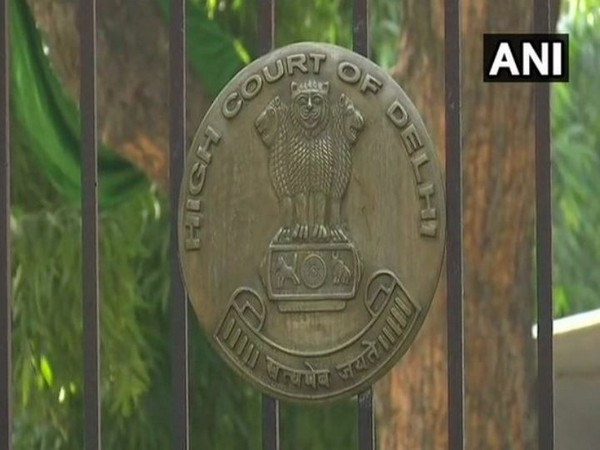HC directs implementation of measures suggested by expert panel to improve medical services in Delhi
HC directs implementation of measures suggested by expert panel to improve medical services in Delhi

- Country:
- India
Delhi High Court has directed the chief secretary and the principal health secretary to implement within 30 days the ''immediate measures'' recommended by a six-member expert committee for improving medical services in the national capital.
The court has said that as the immediate recommendations of the Dr SK Sarin committee of doctors shall go a long way in saving human lives and are ''not political'' in nature, the model code of conduct for the Lok Sabha polls shall not be a hindrance.
''The chief secretary and the principal health secretary shall also indicate a roadmap as to how they intend to implement the intermediate and long-term measures within the timeline stipulated by the expert committee. Let an action taken-cum-status report be filed by the principal health secretary within four weeks,'' a bench of Acting Chief Justice Manmohan and Justice Manmeet PS Arora said in a 17-page order on Tuesday.
In pursuance to the high court's February 13 order, the Dr Sarin committee, constituted by the court, submitted its interim report and recommendations. The court's order had come on a PIL it initiated on its own in 2017 over the alleged lack of ICU beds and ventilators in government hospitals.
The committee pointed out certain deficiencies in the medical system, including vacant posts, shortage of critical faculty, infrastructure, medical or surgical consumables, emergency operation theatres and trauma services and referral system.
The report said the committee delved into the contents of the high court's earlier order and appreciated that the major concerns raised in the matter is regarding efficient emergency healthcare services to the citizens of Delhi.
It said the panel has decided to address the issue of ''efficient emergency healthcare services'' as its top priority and added it is implied that the requisite finances and administrative support will be provided by the Delhi government for realisation of these health sector needs.
The committee has recommended that the immediate measures be implemented within 30 days, short-term measures in 31 to 90 days, intermediate measures in 91 to 365 days and long-term measures in one to two years.
For optimisation of existing resources in various Delhi hospitals, either owned by the state government or the Municipal Corporation of Delhi, the panel suggested immediate measures, including redistribution of consultants, extension of tenure or reappointment of specialists, hiring or empanelment of consultants from the private sector and proper utilisation of equipment.
It also suggested ways and means to devise a mechanism for the establishment of a control room that will enable the provision of real-time information concerning the availability of ICU/HDU beds in hospitals and their timely availability.
As an immediate and short-term measure, a centralised command and control room has to be established by the IT department of the Delhi government that should be manned by adequate trained executives and medical professionals round the clock.
To ensure adequate infrastructure and manpower in hospitals, as an immediate measure, 15 per cent of the vacant posts in all categories are to be filled within 30 days, the committee report said.
It suggested permitting hiring of doctors on a contract basis as academic faculty or consultants by the director or medical superintendent of the institution and the salary and perks of contractual doctors should be at least same as of regular employees.
The committee further suggested introducing emergency services in the Delhi Arogya Kosh (DAK) and said a mechanism of online approvals for availing of DAK facility within four hours of application should be ensured.
''Residents of Delhi should be allowed to use their Aadhaar card in all private hospitals and get cashless facilities at CGHS (Central Government Health Scheme) rates in an emergency situation in any nearby facility. Private hospitals should be asked to give such an undertaking while operating in Delhi. Dedicated full time MS or director for all hospitals. Teaching faculty to provide tele-medicine services to the district hospitals,'' the report said.
The court granted liberty to the committee to file a supplementary report within four weeks and asked the registry to forward a copy of the order to the Election Commission for information.
It listed the matter for further hearing on May 24.
The high court had earlier observed that machines, medicines and manpower were ''woefully inadequate'' in the national capital's government hospitals and remarked that authorities vested with the power to run, administer and manage the hospitals ''were not on the same page'' and, without critical infrastructure, the ''golden hour'' of saving a life might be lost.
(This story has not been edited by Devdiscourse staff and is auto-generated from a syndicated feed.)
ALSO READ
Identity Cards Saga: Vikramaditya Singh Counters Kangana Ranaut's Aadhaar Card Mandate
Debate Over Aadhaar: Minister Singh Criticizes MP Ranaut's Remark
SC to consider submission to set up bench to hear plea challenging passage of laws like Aadhaar Act as Money Bill.
India's E-Mobility Roadmap: Introducing Aadhaar for Batteries
Gujarat's Groundbreaking Aadhaar-based GST Verification to Go National










